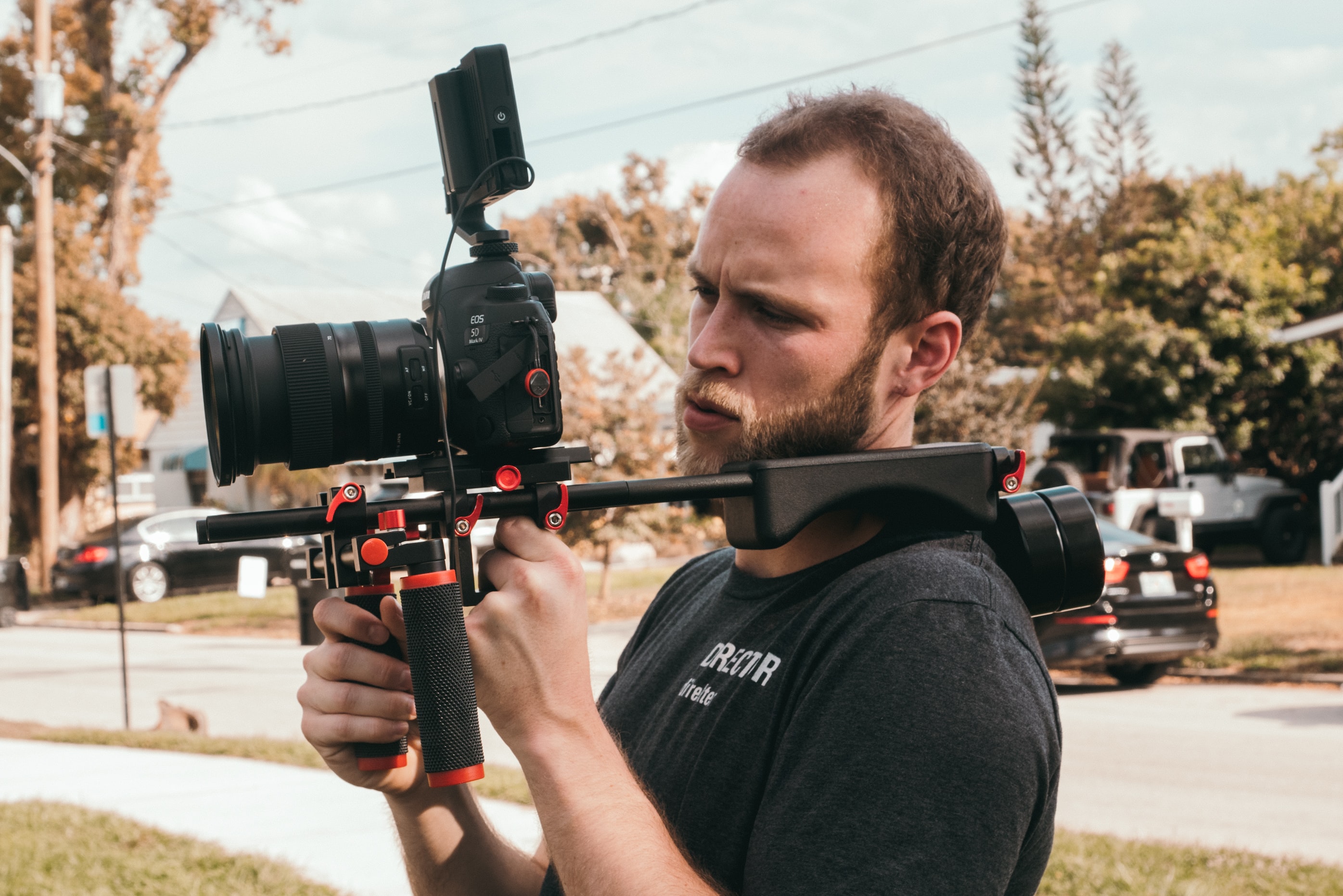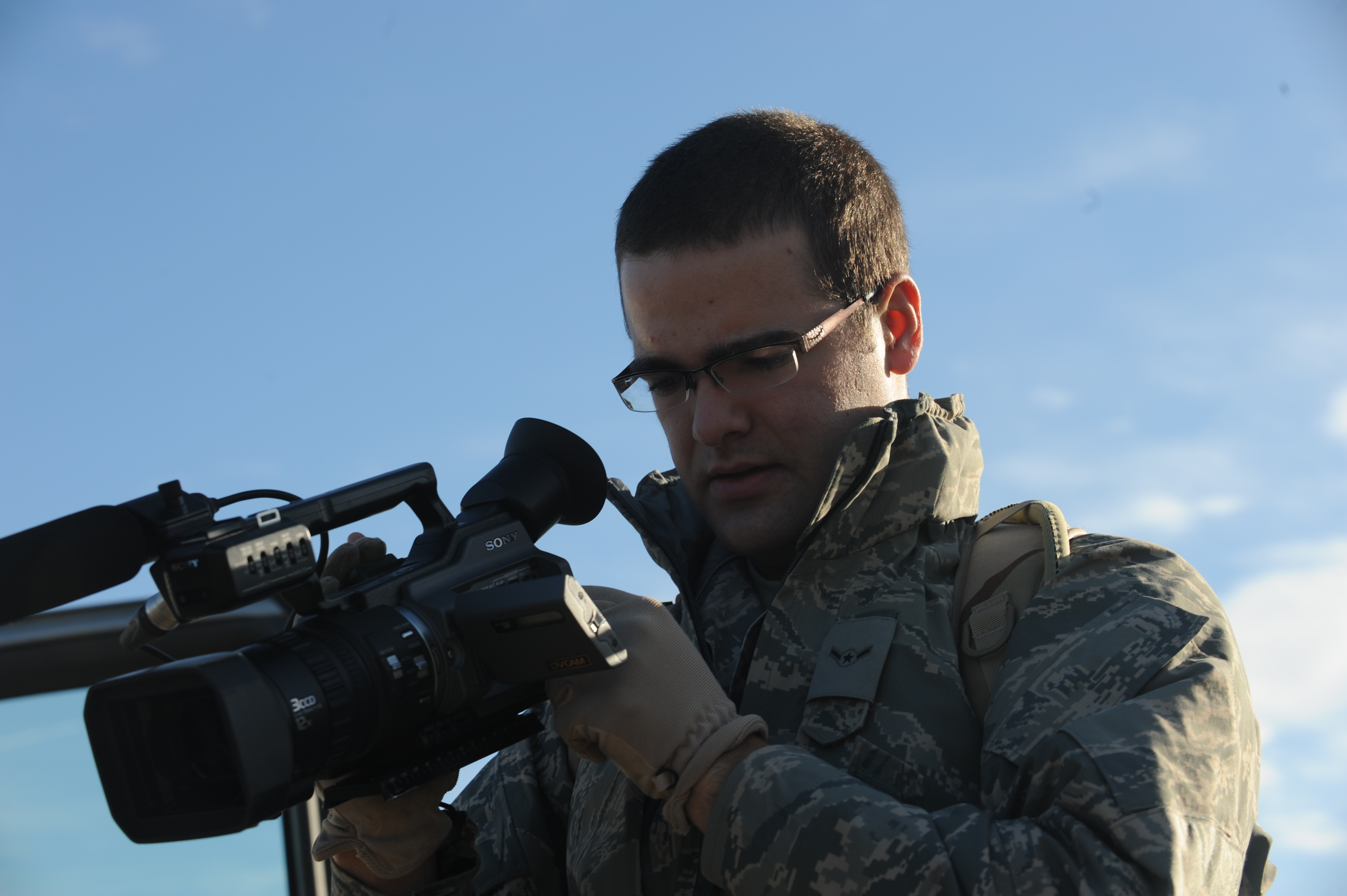Videographer on:
[Wikipedia]
[Google]
[Amazon]

 Videography is the process of capturing moving images on electronic media (e.g.,
Videography is the process of capturing moving images on electronic media (e.g.,
 The arrival of computers and the
The arrival of computers and the
Home Studio vs Professional Studio
/ref>

 Videography is the process of capturing moving images on electronic media (e.g.,
Videography is the process of capturing moving images on electronic media (e.g., videotape
Videotape is magnetic tape used for storing video and usually sound in addition. Information stored can be in the form of either an analog or digital signal. Videotape is used in both video tape recorders (VTRs) and, more commonly, videoca ...
, direct to disk recording
A hard disk recorder (HDR) is a system that uses a high-capacity hard disk to record digital audio or digital video. Hard disk recording systems represent an alternative to reel-to-reel audio tape recording and video tape recorders, and provide n ...
, or solid state storage) and even streaming media
Streaming media is multimedia that is delivered and consumed in a continuous manner from a source, with little or no intermediate storage in network elements. ''Streaming'' refers to the delivery method of content, rather than the content i ...
. The term includes methods of video production and post-production. It used to be considered the video equivalent of cinematography
Cinematography (from ancient Greek κίνημα, ''kìnema'' "movement" and γράφειν, ''gràphein'' "to write") is the art of motion picture (and more recently, electronic video camera) photography.
Cinematographers use a lens to focu ...
(moving images recorded on film stock), but the advent of digital video recording in the late 20th century blurred the distinction between the two, as in both methods the intermediary mechanism became the same. Nowadays, any video work could be called ''videography'', whereas commercial motion picture production would be called cinematography.
A videographer is a person who works in the field of videography and/or video production. News broadcasting
News broadcasting is the medium of broadcasting various news events and other information via television, radio, or the internet in the field of broadcast journalism. The content is usually either produced locally in a radio studio or tele ...
relies heavily on live television
Live television is a television production broadcast in real-time, as events happen, in the present. In a secondary meaning, it may refer to streaming television over the Internet when content or programming is played continuously (not on deman ...
where videographers engage in electronic news gathering
Electronic news-gathering (ENG) or electronic journalism (EJ) is usage of electronic video and audio technologies by reporters to gather and present news instead of using film cameras. The term was coined during the rise of videotape tech ...
(ENG) of local news stories.
Uses
 The arrival of computers and the
The arrival of computers and the Internet
The Internet (or internet) is the global system of interconnected computer networks that uses the Internet protocol suite (TCP/IP) to communicate between networks and devices. It is a '' network of networks'' that consists of private, p ...
in the 1980s created a global environment where videography covered many more fields than just shooting video with a camera, including digital animation (such as Flash), gaming
Gaming may refer to:
Games and sports
The act of playing games, as in:
* Legalized gambling, playing games of chance for money, often referred to in law as "gaming"
* Playing a role-playing game, in which players assume fictional roles
* Playing ...
, web streaming, video blogging, still slideshows, remote sensing, spatial imaging, medical imaging, security camera imaging, and in general the production of most bitmap and vector based assets. As the field progresses, videographers may produce their assets entirely on a computer without ever involving an imaging device, using software-driven solutions. Moreover, the very concept of sociability and privacy are being reformed by the proliferation of cell-phone, surveillance video, or Action-cameras, which are spreading at an exceptional rate globally.
A videographer may be the actual camera operator or they may be the person in charge of the visual design of a production (the latter being the equivalent of a cinematographer).
Videography in social science
In social sciences, videography also refers to a specific research method of video analysis, that combines ethnography with the recording of sequences of interaction that are analysed in details with methods developed on the basis of conversation analysis. One of the best known application is in workplace studies.Videographers
On a set, in atelevision studio
A television studio, also called a television production studio, is an installation room in which video productions take place, either for the production of live television and its recording onto video tape or other media such as SSDs, or for ...
, the videographer is usually a camera operator of a professional video camera
A professional video camera (often called a television camera even though its use has spread beyond television) is a high-end device for creating electronic moving images (as opposed to a movie camera, that earlier recorded the images on film). ...
, sound, and lighting. As part of a typical electronic field production (EFP) television crew, videographers usually work with a television producer
A television producer is a person who oversees one or more aspects of video production on a television program. Some producers take more of an executive role, in that they conceive new programs and pitch them to the television networks, but upon ...
. However, for smaller productions (e.g. corporate and event videography), a videographer often works alone with a single-camera setup
The single-camera setup, or single-camera mode of production, also known as portable single camera, is a method of filmmaking and video production.
The single-camera setup originally developed during the birth of the classical Hollywood cinem ...
or in the case of a multiple-camera setup
The multiple-camera setup, multiple-camera mode of production, multi-camera or simply multicam is a method of filmmaking and video production. Several cameras—either film or professional video cameras—are employed on the set and simultaneou ...
, as part of a larger television crew with lighting technician
Electrical lighting technicians (ELT), or simply lighting tech, are involved with rigging stage and location sets and controlling artificial, electric lights for art and entertainment venues (theatre or live music venues) or in video, television, ...
, grips and sound operators.
Typically, videographers are distinguished from cinematographers in that they use digital hard-drive, flash cards or tape drive video cameras vs. 70mm IMAX, 35mm, 16mm or Super 8mm mechanical film cameras. Videographers manage smaller, event scale productions (commercials, documentaries, legal depositions, live events, short films, training videos, weddings), differing from individualized large production team members. The advent of high definition digital video cameras, however, has blurred this distinction.
Videographers maintain and operate a variety of video camera equipment, sound recording devices, edit footage, and stay up to date with technological advances. With modern video camcorders, professional studio quality videos can be produced at low cost rivaling large studios. Many major studios have stopped using film as a medium due to linear-editing devices no longer being made and the availability for amateurs to produce acceptable videos using DSLRs ( Digital single-lens reflex camera). Videographers use non-linear editing software on home computers./ref>
See also
* 3D film *Cinematography
Cinematography (from ancient Greek κίνημα, ''kìnema'' "movement" and γράφειν, ''gràphein'' "to write") is the art of motion picture (and more recently, electronic video camera) photography.
Cinematographers use a lens to focu ...
* Camera coverage
* Camera operator
*Camera tracking
In visual effects, match moving is a technique that allows the insertion of computer graphics into live-action footage with correct position, scale, orientation, and motion relative to the photographed objects in the shot. The term is used loos ...
* Cinematic techniques
* Digital cinema
* Event videography
*Filmmaking
Filmmaking (film production) is the process by which a motion picture is produced. Filmmaking involves a number of complex and discrete stages, starting with an initial story, idea, or commission. It then continues through screenwriting, cast ...
* Underwater videography
* Video production
* Wedding videography
References
Further reading
* Knoblauch H, Tuma R (2011) Videography: an interpretive approach to video-recorded micro-social interaction. In: Margolis E., Pauwels L. (eds) The Sage Handbook of Visual Methods. Thousand Oaks, CA: Sage, 414–430. {{Authority control Film production Television terminology Cinematography Film and video technology